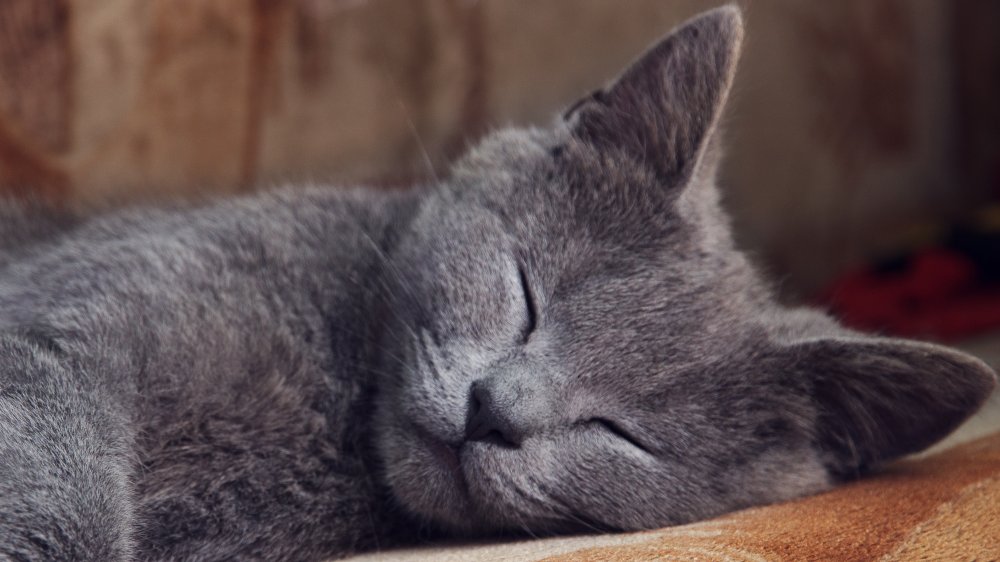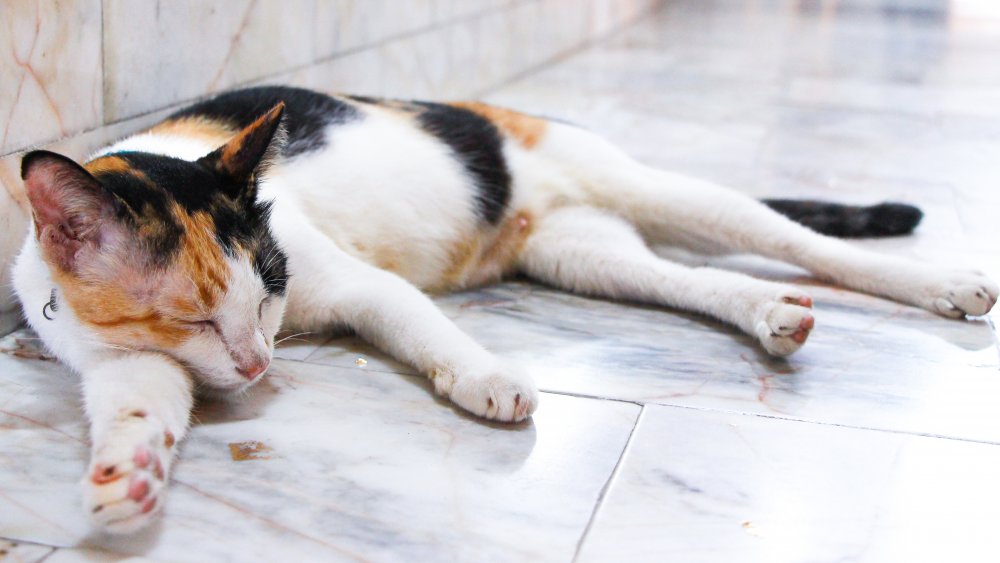The Real Reason Your Cat Is Twitching In Its Sleep
Cats are cute and adorable, but it's easy to develop an underlying assumption that they're also basically just tiny snooze machines who sleep away the day, only waking up on occasion in order to make everyone's life a little more difficult — and noisier, especially if it's 3 a.m. and you have to be up early in the morning. In reality, though, the whole sleeping thing is just one of the many things everyone gets wrong about cats. They're mostly dozing off to help their digestive systems deal with their meat-based diet, and as anyone who has attempted stealthily opening an interesting-sounding package within a cat's earshot can attest, they're rarely quite as fast asleep as you'd think.
However, there is one thing that appears to strongly suggest that the cat might be well and truly out of it. We're talking, of course, about sleep twitching. As Sleep.org notes, Mitten's sleepy zone twitches can be quite expressive, as its paws, tail and/or whiskers can all get in the moving-about game. Have you ever wondered what this particular phenomenon is all about? Could it be that cats dream, just like us? And if so, could they possibly dream about anything other than total world domination?
Dreams of a feline persuasion
A surprisingly exhaustive article by the Hill's Pet website argues that sleep twitching might be a symptom of REM sleep — the deep sleep stage where dreaming occurs. Looking at a cat utilizing its full repertoire of sleep twitches, odd vocalizations and stretches, it's indeed easy to accept the possibility that the feline forty winks in question might involve a dream or two. Besides, science confirmed way back in the 1960s that cats can indeed enter the REM stage, so there's that.
So, yeah, cats dream. As for what kinds of dreams they have, we're simply not sure. Thanks to scientific evidence of REM sleep in cats, such as a temporary, paralysis-like muscle tone loss known as atonia, we know that something is going on in their heads when they dream. Then again, as veterinary sleep researcher Dr. Adrian R. Morrison points out, we have a hard time knowing what cats think even when they're awake, so interpreting their dreams is a bit of a long shot. So, until science finally figures out how to pull one of those Inception-dream spy capers on a cat, we'll just go with the "total world domination" theory.

